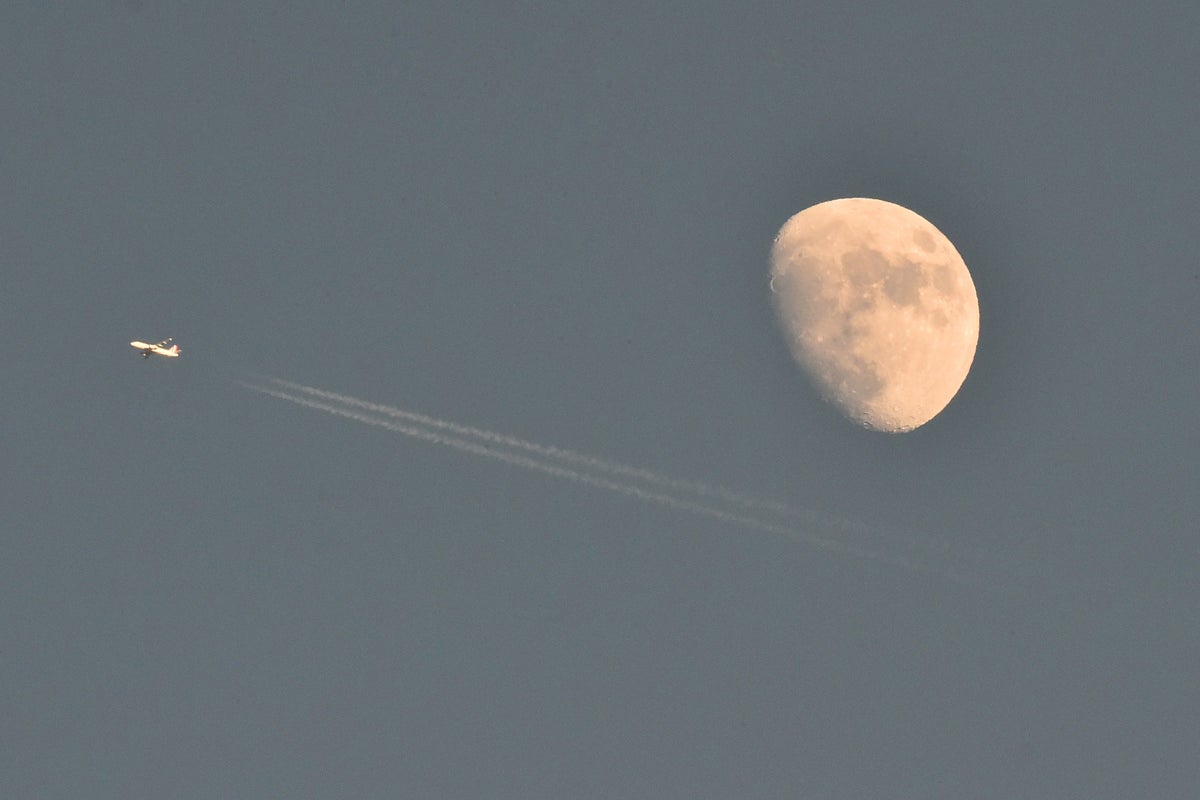Science
Scientists Uncover New Insights on Earth’s Moon Formation Event

A team of scientists has provided new insights into the formation of Earth’s moon, describing it as one of the most significant events in our planet’s history. Their research, detailed in the paper titled “The Moon-forming impactor Theia originated from the inner Solar System,” was published in the renowned journal Science on September 29, 2023.
The study focuses on the origins of Theia, the celestial body believed to have collided with Earth approximately 4.5 billion years ago. This catastrophic event is thought to have resulted in the formation of the moon from debris generated during the impact. The findings suggest that Theia did not originate from the outer regions of the Solar System, as previously hypothesized, but rather from the inner Solar System, which has implications for our understanding of planetary formation.
Revising Theia’s Origin
The research was led by a group of planetary scientists from Harvard University and the Massachusetts Institute of Technology (MIT). They conducted simulations that examined the isotopic compositions of Earth’s rocks compared to those of other celestial bodies. The results indicate a closer relationship between Earth and Theia than previously thought, supporting the idea that Theia was a member of the inner Solar System.
Professor Gunnar M. B. M. E. H. F. H. H. S. J. D. J. J. E. B. J. N. R. S. J. A. M. R. W. T. U. J. M. B. H. F. S. R. R. R. G. J. J. A. M. R., a co-author of the study, emphasized the importance of this research in understanding our planet’s history. “This work reshapes our perspective on how our moon was born,” he stated. “Understanding Theia’s origins can help us better comprehend the processes that shaped not only Earth but also other rocky planets in the Solar System.”
The implications of these findings extend beyond our planet. They provide a clearer framework for understanding the formation of similar celestial bodies and the dynamics of the early Solar System. The research team’s work opens up avenues for future studies, particularly in the fields of planetary science and astrophysics.
Impact on Planetary Science
The study’s findings challenge long-standing theories regarding the formation of moons and planets. By establishing that Theia was part of the inner Solar System, the research suggests that the processes that led to the formation of the moon are more complex than previously believed.
As scientists continue to explore the mysteries of our Solar System, this research serves as a reminder of the dynamic and ever-evolving nature of scientific understanding. The paper not only contributes to the academic discourse on planetary formation but also inspires future generations of scientists to delve deeper into the history of our celestial neighborhood.
In summary, the work presented by this team of scientists is pivotal in reshaping our understanding of the moon’s origins and the events that led to its formation. Their findings, published in Science, underscore the significance of Theia’s role in the history of Earth, offering a fresh perspective on the intricate processes that govern planetary development.
-

 Health3 months ago
Health3 months agoNeurologist Warns Excessive Use of Supplements Can Harm Brain
-

 Health3 months ago
Health3 months agoFiona Phillips’ Husband Shares Heartfelt Update on Her Alzheimer’s Journey
-

 Science1 month ago
Science1 month agoBrian Cox Addresses Claims of Alien Probe in 3I/ATLAS Discovery
-

 Science1 month ago
Science1 month agoNASA Investigates Unusual Comet 3I/ATLAS; New Findings Emerge
-

 Science4 weeks ago
Science4 weeks agoScientists Examine 3I/ATLAS: Alien Artifact or Cosmic Oddity?
-

 Science4 weeks ago
Science4 weeks agoNASA Investigates Speedy Object 3I/ATLAS, Sparking Speculation
-

 Entertainment4 months ago
Entertainment4 months agoKerry Katona Discusses Future Baby Plans and Brian McFadden’s Wedding
-

 Entertainment4 months ago
Entertainment4 months agoEmmerdale Faces Tension as Dylan and April’s Lives Hang in the Balance
-

 World3 months ago
World3 months agoCole Palmer’s Cryptic Message to Kobbie Mainoo Following Loan Talks
-

 Science4 weeks ago
Science4 weeks agoNASA Scientists Explore Origins of 3I/ATLAS, a Fast-Moving Visitor
-

 Entertainment4 months ago
Entertainment4 months agoLove Island Star Toni Laite’s Mother Expresses Disappointment Over Coupling Decision
-

 Entertainment3 months ago
Entertainment3 months agoMajor Cast Changes at Coronation Street: Exits and Returns in 2025









